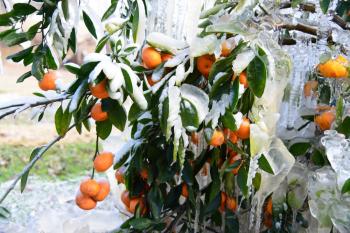
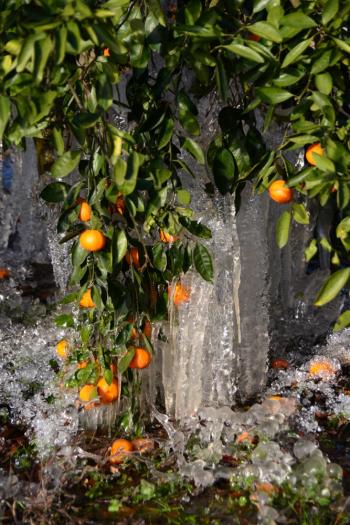
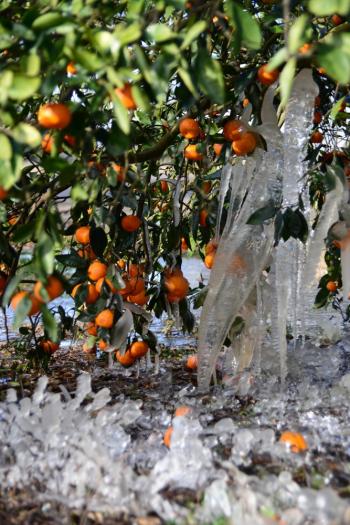
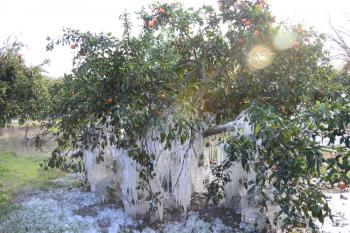
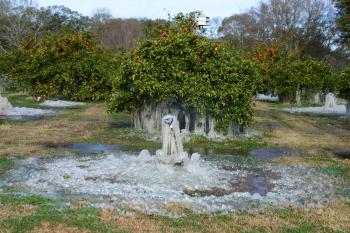
Breaux Bridge Citrus grower crossing his fingers
The thermometer reached below 21 degrees, with low humidity and north winds on the night of Jan. 6, a Monday. People were concerned about their pets, water pipes, fruit trees and outside plants.
For Jason Dupuis of the Dupuis Citrus Grove in Breaux Bridge, it was his citrus trees. But he feels that he dodged the bullet in the recent sub-freezing temperatures experienced earlier this month – at least for his trees, which are more important to him than the fruit that froze on the branches.
The fruit crop of Satsuma, navels, grapefruit, kumquat, lemons, etc. is still being assessed for damages.
Dupuis’ main concern was the trees that could have died from several days of below 32 degree temperatures, leaving him with nothing for next year’s crop.
The precautions taken for the trees won’t be determined for several more weeks, but he seemed cautiously confident that starting his scaffold branch irrigation system the Sunday before that actual freeze period might have saved his grove. The system wasn’t turned off until after all the ice thawed around and under his fruit-laden trees the following Wednesday.
Growing fruit trees has been a lifelong passion for him Dupuis. In 1984, he planted over 60 trees, and then 100 more in 1985. He lost them all from a freeze shortly after that, even with the popular Rain Bird irrigation system. Below Belle Chasse, just south of New Orleans, also saw citrus tree owners who experienced a total loss of their produce and have yet to come back to that type of development.
More citrus trees were planted in the 90s by Dupuis, about 600 three-foot-high typical nursery saplings with better protection. He researched his current scaffold branch irrigation type soon after it proved successful at the regional agricultural experimental station. He invested in it and has found the system to be better protection for his trees since that time.
His system works by spraying under the fruit laden trees with water that is warmer than the air, and brings the temperature around the tree higher than the ambient air. The water freezes and insulates the trunk of the tree, protecting it from below-freezing temperatures. The ice covers the roots of the trees as well, not knowing how long any cold snap might last, but stays within the confines of each citrus canopy.
“If you save the trunk of the tree, it’ll regrow and be all right for the next year,” Dupuis said. “If you lose the tree, you lose its production forever. Only time will tell if I did the right thing during this past cold snap.”
- Log in to post comments
